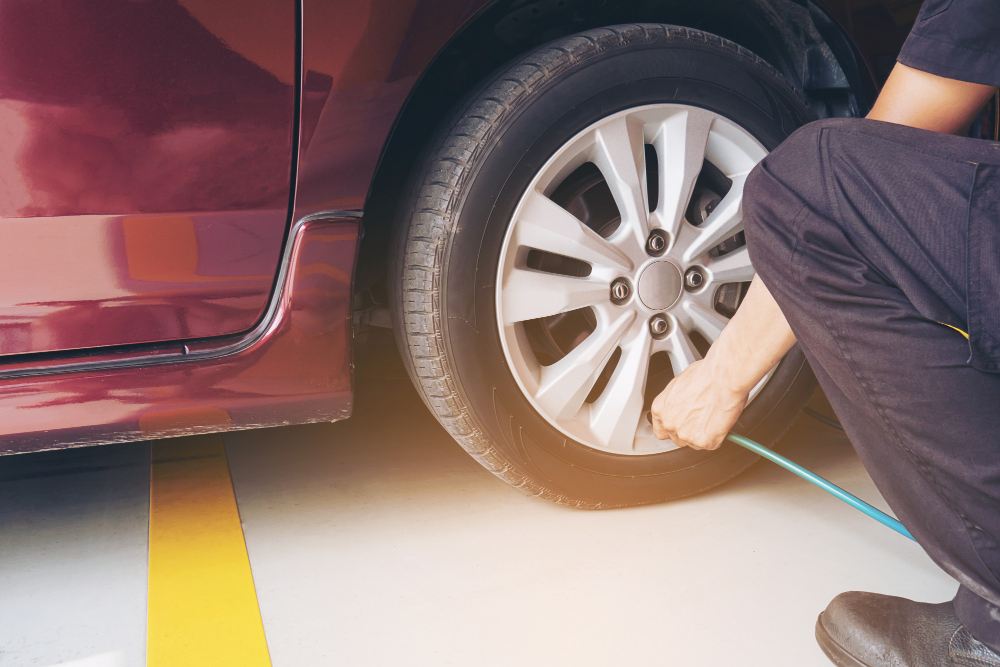Ever seen a heavy truck parked on a slope and wondered what keeps it from rolling away? That’s the silent magic of rubber wheel chocks. Across Saudi Arabia’s fast-growing industrial and construction sectors, these small but mighty tools are playing a major role in workplace safety. Choosing high-quality rubber wheel chocks in Saudi Arabia can make all the difference between a secure site and a safety hazard.
Understanding the Role of Wheel Chocks
Wheel chocks are simple wedge-shaped blocks designed to prevent vehicles or heavy equipment from moving unintentionally. While they might seem like minor accessories, they’re actually essential safety gear—especially in high-risk environments like construction zones, factories, and warehouses. According to OSHA guidelines, using chocks when parking heavy vehicles on inclines is a critical safety requirement to prevent rollaway accidents.
Top Benefits of Using Rubber Wheel Chocks
1. Superior Grip and Traction
Rubber chocks are known for their high friction and excellent grip on various surfaces—whether concrete, asphalt, or gravel. In the hot and dusty conditions typical of Saudi job sites, they offer a dependable non-slip hold that metal or plastic chocks can’t always match.
- Non-slip material: Rubber’s natural elasticity grips both tires and the ground tightly.
- Weather resistance: Ideal for outdoor use, even under harsh desert temperatures.
- Durable design: Can handle the weight of large construction trucks and industrial trailers.
2. Easy to Handle and Maintain
Compared to metal chocks, rubber versions are lightweight yet strong, making them easier for workers to position or remove quickly. They also don’t corrode or rust, even when exposed to water, oil, or chemicals—a huge plus in industrial settings where maintenance time equals money.
3. Cost-Effective Safety Solution
Rubber chocks deliver impressive durability at an affordable price point. They don’t require frequent replacements, making them a practical long-term investment for project managers and safety officers. Over time, this simple addition can prevent costly damage and workplace injuries.
4. Versatile for Multiple Applications
Whether used in logistics yards, construction sites, or maintenance bays, rubber wheel chocks fit virtually any vehicle or machinery type. Many PU wheel chocks manufacturer in Saudi Arabia offer customizable options—such as reflective stripes for night visibility or handles for easier transport—ensuring they suit every specific operational need.
5. Compliance with International Safety Standards
In Saudi Arabia, where industrial safety is increasingly regulated, using certified wheel chocks helps businesses stay compliant with both local and global standards. It not only protects workers but also safeguards a company’s reputation for safety-conscious operations.
Choosing the Right Wheel Chock for the Job
While rubber chocks are the go-to choice for most environments, there are other materials—like polyurethane (PU) or aluminum—that may be suited for specific industries such as aviation or mining. For deeper insights on choosing the right type for your application, check out How to Choose the Right Wheel Chock Materials for Aviation Use?.
Expert Tips for Selecting Wheel Chocks:
- Match the chock size to your tire diameter and vehicle weight.
- Choose high-visibility colors for night or low-light operations.
- Opt for rubber chocks with treaded surfaces for better grip.
- Ensure compliance with ISO or OSHA safety standards.
Why Rubber Chocks Stand Out in Saudi Conditions?
In regions like Riyadh, Jeddah, or Dammam, where high heat and shifting terrain can affect vehicle stability, rubber chocks offer unmatched reliability. They don’t crack under intense sunlight or slip on sandy surfaces, making them perfectly suited for local working conditions.
FAQs About Rubber Wheel Chocks
1. What makes rubber wheel chocks better than plastic ones?
Rubber provides better traction and flexibility under heavy loads. It’s also more durable and heat-resistant—key factors for Saudi industrial environments.
2. How often should wheel chocks be replaced?
Inspect them regularly for wear or cracks. In high-traffic areas, replacements may be needed every 12–18 months depending on usage.
3. Can rubber chocks be used on uneven ground?
Yes, their flexible design allows for secure placement even on slightly uneven or sloped surfaces, ensuring consistent stability.
4. Are reflective or handled chocks worth it?
Absolutely. Reflective strips improve night visibility, while built-in handles make them easier to carry and position—ideal for large construction zones.
Final Thoughts
From heavy-duty trucks to construction machinery, rubber wheel chocks are indispensable for safety across Saudi Arabia’s industrial landscape. They’re affordable, durable, and perfectly adapted to local environmental challenges. Investing in high-quality chocks today ensures your operations remain secure, compliant, and efficient tomorrow.





